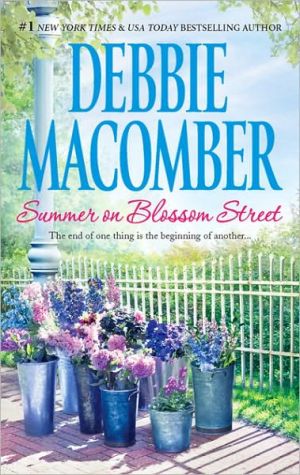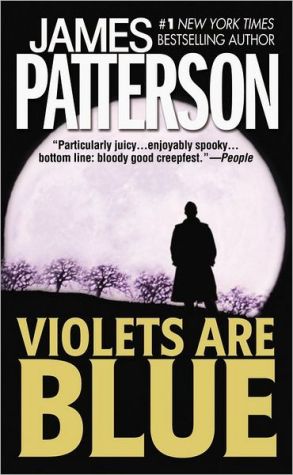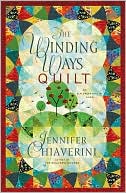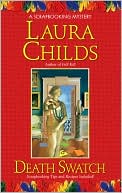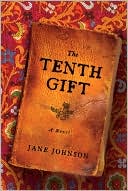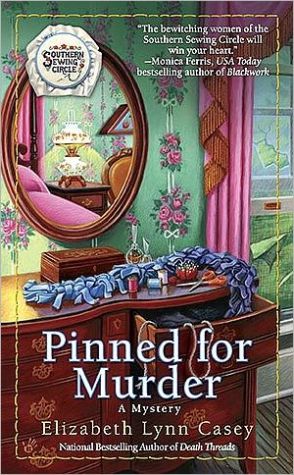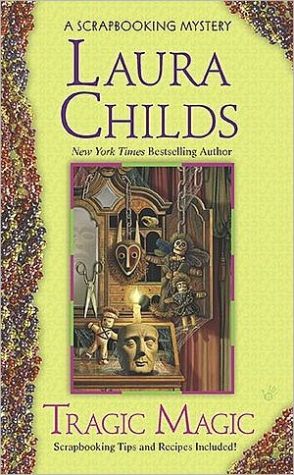The Lost Garden
Leaving London to grow food for the war effort, Gwen discovers a mysterious lost garden and the story of a love that becomes her own.\ This word-perfect, heartbreaking novel is set in early 1941 in Britain when the war seems endless and, perhaps, hopeless. London is on fire from the Blitz, and a young woman gardener named Gwen Davis flees from the burning city for the Devon countryside. She has volunteered for the Land Army, and is to be in charge of a group of young girls who will be trained...
Search in google:
Leaving London to grow food for the war effort, Gwen discovers a mysterious lost garden and the story of a love that becomes her own.Nancy GoodwinThis is a book to read again and again.
1\ \ What can I say about love? You might see me sitting in this taxi, bound for Paddington Station—a thirty-five-year-old woman with plain features—and you would think that I could not know anything of love. But I am leaving London because of love.\ \ I wasn't born in the city, have only lived here for the past ten years, since I left gardening college and came to work at the Royal Horticultural Society. But what is love if not instant recognition? A moment of being truly equal to something. What I recognized in this place, from the moment I arrived here, was something within myself that I didn't even know was there. Something under the skin, in the blood. A pulse of familiarity. The wild, lovely clutter of London. Small streets that twisted like rivers. Austere stone cathedrals. The fast, muddy muscle of the Thames, holding the city apart from itself; the tension of that moving gap, palpable, felt. I have leaned over the stone balustrade of the Embankment in the dark, the true dark now of the blackouts when even starlight is an act of treachery. In blacked-out London, people, once familiar with the city, bump along the streets, fumbling from building to building as though blind. But I have stood beside the Thames and felt it there, twining beneath my feet like a root.\ \ But this is what can no longer be trusted. Every day the landscape is radically altered. Houses become holes. Solids become spaces. Anything can disappear overnight. How can love survive this fact?\ \ The streets are almost empty. I look up as we drive along the Vauxhall Bridge Road and from between two buildings I see a flicker of green that leads to Vincent Square and the stone face of the Royal Horticultural Society looking down into the Westminster Play Ground. Only yesterday I was there in my life, hurrying back from lunch with Roy Peake. At the corner of the square a Canadian soldier said goodbye to his girl. "So long, sweetheart." I liked the jaunty ring of it. I had been walking up the steps of the Royal Horticultural Society, listening to Roy Peake prattle on about his "unknown pear." I think he is secretly hoping he won't be able to identify it so he can name it after himself. Peake's Pear. I have to admit it does sound right. Certain. The stumble of p's like two perfect, companionable, musical notes.\ \ Peake's Pear. I was thinking this, treading the grey stone steps back to my office, when the voice called from along the square with such confidence I turned right around. I am always envious of confidence. This is why I was first drawn to Roy Peake. He spoke so passionately one day about old local apples, standing in my office doorway, holding an "Orange Goff" in one hand and a "Pigeon's Heart" in the other. This was back when his interests were more varied, before the eternal days of the "unknown pear."\ \ Can words go straight to the heart? Is this possible? Can words be as direct as the scent of roses? A man calls from a street corner and I turn my head to the voice as I would turn to the fragrance of a climbing rose, tangled through an arbour.\ \ I have said my farewells to my fellow boarders at Mrs. Royce's house on Denbigh Street. I have said my farewells and felt nothing. In the two years I lived there I did not befriend any of them, and even though Mr. Gregory tried to make me like him, I never did. Aside from those I worked with, I have no one else to say goodbye to; but now, as I drive away from where I've lived, I feel unbearably sad. There is the street where a magnificent cherry tree grows. I will miss it flowering this year. I will likely never see it again.\ \ I look through the taxi window, unable to not watch the familiar streets reel away from me. The wind sways the barrage balloons tethered above the buildings, and they lean the same way, like boats swinging with the tide, at anchor in the harbour.\ \ Most of the buildings themselves are padded with sandbags around the base. Windows are criss-crossed with strips of gummed paper—a pathetic attempt to keep the glass intact when the blasts hit. But there are more windows gone than not. I have walked by restaurants and public houses, their windows shattered into the street and the patrons eating dinner or standing up at the bar with a pint, as though this is a perfectly ordinary occurrence, as though there have never been windows in this, their local establishment.\ \ There are Air Raid Shelter placards on most shop windows and buildings. There are queues of children outside the underground stations in the mornings, waiting to secure a space for that evening's shelter.\ \ I know how to judge the relative distance of an exploding bomb. Those far enough away not to inflict any personal damage make a dull, crumpled sound, like that from a collision between an automobile and a lamppost. The bombs the Germans drop that are close enough to kill emit a strangled whistle, not unlike that of a sort of huge, maniacal teakettle.\ \ I cannot reconcile myself to these changes. I cannot continue adapting to the destruction of the city. London is burning now. In January, eight of the city churches and the Guildhall were destroyed by fire. I could see the smoke from my boarding-house bedroom, swaying against the night sky. I could see the red blossoms of fire blooming along the rooftops.\ \ The taxi winds its way towards the station. Past a row of terraced houses, one suddenly gone out of the middle. Children already clambering over the pile of bricks someone's home has become. An accordion of staircase poking out of the top of the rubble. A flag of torn curtain fluttering from under a window frame. A looking-glass hanging crookedly on the lone remaining wall. In the distance I can hear the wail of approaching aid.\ \ There's something indecent about glimpsing someone's private space after a midnight bomb has shattered it. Flash of wallpaper. The wind shuffing the pages of an open book. All that was not meant for us to see, suddenly all there is to see. Just as the taxi pulls away from this crater of rubble, I see the hand. It pokes out from a pile of broken bricks, fingers curled slightly as though it has just thrown a ball and is waiting to catch it as it falls from the sky. A child's hand. I see the sleeve of fabric still attached, and then the taxi is past.\ \ I do not know how to reconcile myself to useless random death. I do not know how to assimilate this much brutal change, or how to relearn this landscape that was once so familiar to me and is now different every day. I cannot find my way back to my life when all my known landmarks are being removed. Last week I even became lost in the corner of Bloomsbury where I lived before I moved to Mrs. Royce's on Denbigh Street at the beginning of the war, to be closer to my office. I was looking for my usual marker that determined where to turn, a four-storey brick house on the corner of a square. The house had become, since last I'd been there, a small hill of brick dust and broken glass.\ \ This is what I know about love. That it is tested every day, and what is not renewed is lost. One chooses either to care more or to care less. Once the choice is to care less, then there is no stopping the momentum of goodbye. Each loved thing slips away. There is no stopping it.\ \ We have arrived at Paddington. The sun shivers along the glass in the station roof.\ \ So long, sweetheart.\ \ Copyright © 2002 Helen Humphries. All rights reserved.
\ From Barnes & NobleBarnes & Noble Discover Great New Writers\ Fleeing war-torn London in 1941, gardener Gwen Davis leaves the "wild, lovely clutter" of the city for the safe haven of the English countryside. Unwilling to watch her beloved city crumble under the assault of incendiary German bombs, she accepts a position at a requisitioned estate in Devon, supervising the farming of potatoes for the war effort. \ A 35-year old spinster with a wicked wit and a fondness for literature, Gwen arrives at her new post to find that the group of "Land Girls" she's to supervise have little interest in planting. They're far more eager to cultivate the human crop -- a regiment of Canadian soldiers stationed at the estate, awaiting their assignment. Allying herself with the Canadians' commanding officer, Gwen strategically wins the girls' cooperation by agreeing to a series of evening dances at which they may mix with the soldiers. Pleased to again be in control of her environment, Gwen makes two life-changing discoveries. The first is the existence of feelings she's never before allowed herself to experience. The second is a hidden, abandoned garden on the estate, the secrets of which Gwen is compelled to unlock.\ With poignant, poetic mastery of her craft, Helen Humphreys has produced a smart, no-nonsense, and utterly sympathetic character in Gwen Davis. And as her affecting story unfolds and she plumbs the mysteries of gardening, readers too will explore the depths of the soil in which grow the tender shoots of love. (Fall 2002 Selection)\ \ \ \ \ \ Beth Kephart - Book“This novel...remains with the reader long after the last page is turned, and it feels like an evening walk through a pungent, private garden.”\ \ \ Jessica Teisch - Bookmarks“A beautiful novel with substance.”\ \ \ \ \ Karen Campbell - Boston Globe“Luminous....a stunningly beautiful little gem that lingers in the memory like the heady scent of a damask rose.”\ \ \ \ \ Judy Gaither and Emily Gaither - The Democrat“Multi-layered in its themes with an undercurrent of wartime passion and danger...unforgettable.”\ \ \ \ \ Lisa Michaels“Humphreys has a poet's eye, and the story is full of startling images that linger in the mind.”\ \ \ \ \ Nancy Goodwin“This is a book to read again and again. —Nancy Goodwin, author of A Year in our Gardens”\ \ \ \ \ Rosellen Brown“Those who, as children, loved The Secret Garden will hear its echo in The Lost Garden....[D]elicate, moving.”\ \ \ \ \ Lee Milazzo - Dallas Morning News“A graceful, poetic novel of love and loss in England during World War II.”\ \ \ \ \ Catherine Newton - Morning Star-Telegram“A story of longing, life and death—the stuff all great gardens are made of.”\ \ \ \ \ Matthew Batt - San Francisco Chronicle“Humphreys's affecting third novel never fails to couple the realistic with the ideal, the historical with the timeless.”\ \ \ \ \ Minneapolis Star-TribuneA beautiful evocation of love and loss....Subtle and deeply affecting....Rich and satisfying.\ \ \ \ \ Margot Livesey“A finely wrought novel....What brings Gwen to life and makes this novel work is Humphreys's meticulous, lucid prose.”\ \ \ \ \ BookThis novel...remains with the reader long after the last page is turned, and it feels like an evening walk through a pungent, private garden.— Beth Kephart\ \ \ \ \ BookmarksA beautiful novel with substance.— Jessica Teisch\ \ \ \ \ Boston GlobeLuminous....a stunningly beautiful little gem that lingers in the memory like the heady scent of a damask rose.— Karen Campbell\ \ \ \ \ The DemocratMulti-layered in its themes with an undercurrent of wartime passion and danger...unforgettable.— Judy Gaither and Emily Gaither\ \ \ \ \ Dallas Morning NewsA graceful, poetic novel of love and loss in England during World War II.— Lee Milazzo\ \ \ \ \ Morning Star-TelegramA story of longing, life and death—the stuff all great gardens are made of.— Catherine Newton\ \ \ \ \ San Francisco ChronicleHumphreys's affecting third novel never fails to couple the realistic with the ideal, the historical with the timeless.— Matthew Batt\ \ \ \ \ New York Times Book ReviewA finely wrought novel....What brings Gwen to life and makes this novel work is Humphreys's meticulous, lucid prose.— Margot Livesey\ \ \ \ \ Nancy GoodwinThis is a book to read again and again.\ \ \ \ \ Rosellen BrownThose who, as children, loved The Secret Garden will hear its echo in The Lost Garden....[D]elicate, moving .\ \ \ \ \ The New Yorker"Afterimage," the author's previous novel, described the life of a maidservant employed in the hectic household of the photographer Julia Margaret Cameron. In this measured, lyrical book, the locus is once again a large house deep in the English countryside -- but now it's 1941, and Gwen Davis, a desperately lonely botanist employed by the Royal Horticultural Society to investigate canker in parsnips, has signed up to direct young women agricultural volunteers on an estate requisitioned for the war effort. Humphreys is a metaphysical novelist; for her, intricate emotional content finds specific analogues in the made world -- an astonishing photograph or, as here, an overgrown garden that, once cleared, reveals its consoling secrets.\ \ \ \ \ Beth KephartIt is 1941, and London is beset by war. But out in the Devon countryside, on a ruined estate, a handful of young girls from the Woman's Land Army and a regiment of Canadian soldiers attempt to live and to love, to grow food and to train, while they wait for whatever will happen next. Told by Gwen Davis, an outwardly reserved thirty-five-year-old gardener, this novel reconstructs a held-breath moment in time and the emotional education of a woman who has never felt loved. Most exquisite when describing the discovered gardens of the estate, most haunting toward the end, the book feels at times more like a beautiful idea than a fully imagined story. Some characters are paper-thin, defined only by a tic or a hobby. Some of the dialogue is unnatural, stiff. And yet there is something lovely about the book as a whole. It remains with the reader long after the last page is turned, and it feels like an evening walk through a pungent, private garden.\ \ \ \ \ Publishers WeeklyEvocative, if occasionally clunky, Humphreys's third novel (following Afterimage) is the story of an Englishwoman's search for her place in a world permeated by war. The narrator, 35-year-old Gwen Davis, is a horticulturist who flees bombed-out WWII London to manage a team of "land girls"-women who grow vegetables as part of the war effort-at a country estate. She struggles to manage her wayward charges, who are more interested in the Canadian soldiers billeted in the main house than in cultivating potatoes, and writes letters in her head to her idol Virginia Woolf, whose recent death has left her feeling bereft. She also tries to seduce the world-weary, hard-drinking Captain Raley, who has a secret of his own that dooms their relationship. Though her conflicts pale next to those of the soldiers waiting to be posted to battle and even those of her new friend, Jane, whose cousin is a casualty of war and whose fianc is missing in action, it is Gwen's quiet self-discovery that is at the center of the novel. Humphreys renders convincingly her first, fleeting experience of deep friendship and love. Unfortunately, the story is sometimes marred by overwrought or cloying prose, though Humphreys's language also has its moments of elegance (during the blitz, "houses become holes. Solids become spaces. Anything can disappear overnight"). Humphreys doesn't quite have the narrative energy of Pat Barker and Jane Gardam, but fans of those authors may enjoy this exploration of the impact of WWII on English life. Agent, Frances Hanna. 3-city author tour. (Oct.) Copyright 2002 Cahners Business Information.\ \

